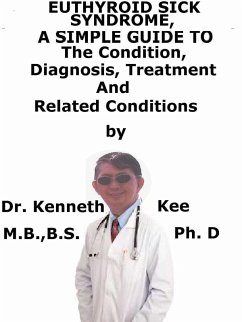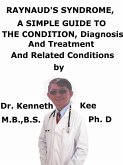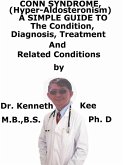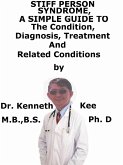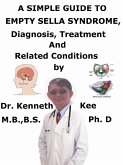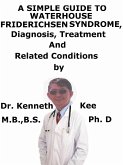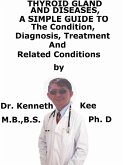Euthyroid Sick Syndrome is a disorder featured by abnormal findings of thyroid function tests in the absence of hypothalamic-pituitary and thyroid gland dysfunction.
These abnormal findings in thyroid function test are often linked with disorders such as:
Underlying systemic diseases such as renal diseases, cardiovascular diseases, pulmonary diseases, gastrointestinal diseases etc.
1. Metabolic disorders
2. Chronic illness such as diabetes
3. Inflammatory conditions
4. Fasting and starvation
5. Trauma
6. Burns and sepsis
7. Myocardial infarction
8. Stress
9. Malignancies
10. Surgeries such as bone marrow transplantation
In adult patients admitted to a medical service:
1. 50% develop a low serum T3 level,
2. 15%-20% develop a low T4 level, and
3. 10% have an abnormal TSH level (either low or high).
Causes:
Generally, there are no predisposing genetic or seasonal risk factors.
It is often seen in link with:
1. Fasting,
2. Starvation,
3. Anorexia,
4. Pneumonia,
5. Trauma,
6. Critical cases in ICU,
7. Stress,
8. Post cardiopulmonary bypass,
9. Renal failure,
10. Diabetic ketoacidosis,
11. Liver cirrhosis,
12. Sepsis.
Symptoms
The most frequent symptoms and signs happen in acutely ill patients
The symptoms are:
1. Bradycardia,
2. Hypotension,
3. Hypoventilation,
4. Hypotonia, and
5. Altered mental status.
These features may also happen with hypothyroidism
Euthyroid sick syndrome very often imitates hypothyroidism.
It is a disorder in which the patient normally shows signs of hypothyroidism such as:
1. Extreme tiredness or fatigue
2. Weight gain
3. Disturbed sleep or insomnia
4. Dryness in skin
5. Depression and mood changes
6. Higher anxiety level
7. Adrenal fatigue.
Patients with central (hypopituitary) hypothyroidism manifest low serum T4, free T4, and low or inappropriately normal serum TSH levels, findings identical to patients with euthyroid sick syndrome.
While serum T4 or free T4 levels may be low in both disorders, serum TSH levels are raised with primary hypothyroidism and normal or low in patients with euthyroid sick syndrome.
Diagnosis
The defining feature of euthyroid sick syndrome is a normal serum TSH level, in spite of low T3 and T4 levels, in acutely ill patients.
The most constant changes in thyroid tests are a reduction in serum T3 and a rise in reverse T3 (rT3) levels.
With more severe acute illness, serum T4 levels also drop.
Serum TSH levels stay normal or low.
With recovery from euthyroid sick syndrome, serum TSH levels may transiently go up above the normal range and serum T3 (and T4 and free T4) levels go back to normal.
Treatment
The treatment planning for euthyroid sick syndrome is done by a doctor or an endocrinologist.
Thyroid hormone replacement is not always indicated.
Based on the lab findings, a short term course of certain thyroid specific medicine may help in treatment of the disorder and reversing the disorder.
Specific supplements may be given for treatment of adrenal function, stress and other symptomatic disorders.
One can also involve lifestyle modification and treatment with alternative medicines, acupuncture and even massage therapy
There is disagreement about whether these patients are truly euthyroid.
Most doctors therefore now refer to euthyroid sick syndrome as "non-thyroidal illness syndrome" or NTI.
Non-thyroidal illness syndrome is a manifestation of hypothalamic-pituitary dysfunction, and in view of present evidence, treatment should be given with appropriate replacement therapies such as pituitary hormones, hypothalamic factors in addition to thyroid hormones.
TABLE OF CONTENT
Introduction
Chapt...
Dieser Download kann aus rechtlichen Gründen nur mit Rechnungsadresse in A, B, CY, CZ, D, DK, EW, E, FIN, F, GR, H, IRL, I, LT, L, LR, M, NL, PL, P, R, S, SLO, SK ausgeliefert werden.

